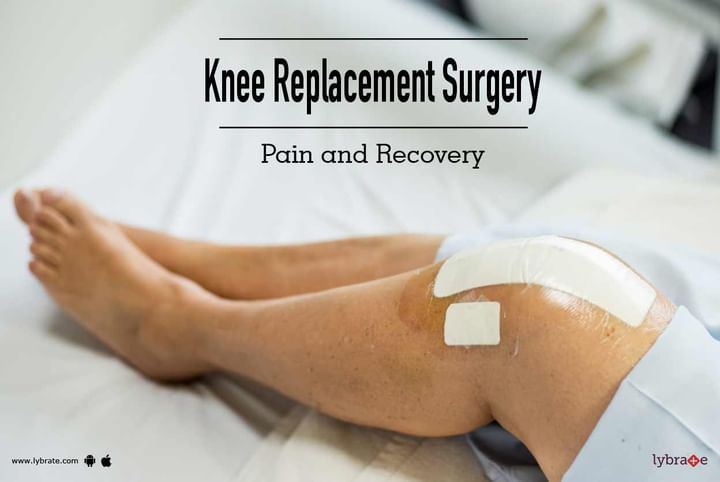Knee Replacement Surgery - Pain and Recovery
Most of us may not be aware, but the knee is the largest joint in the human body and contributes the maximum to a person’s physical movement from one place to another. The knees play a significant role in a variety of movements including squatting, supporting the weight, running, kneeling, sitting, etc.
Whether it is a severe accident, osteoarthritis that set in with age, or other reasons, the result could be stiff, painful knees. The first line of treatment would be exercise, physiotherapy, and medications. However, if these do not work, then surgical treatment is the choice. Though usually it is reserved for people over the age of 50, there could be exceptions.
Given the number of functions it is involved in, when a serious procedure like knee replacement is being considered, the pain that the person would go through and the recovery time are two important parameters to address. It is best that the patient has a detailed discussion with the doctor and gets all doubts clarified. This will help both the patient and the doctor have realistic and practical expectations about what to expect after the surgery.
So, when pain and stiffness make knee replacement inevitable, prepare for it. The following sequence outlines what happens right from surgery to recovery.
-
Under general anesthesia, the damaged portion of the knee is removed, and a prosthesis (metal or plastic) is used to replace the removed portion.
-
Hospital stay can range from 3 to 5 days.
-
In about a month, the patient will have remarkable recovery, with almost no pain.
-
Though not advisable, most patients would be able to stand and do basic movement on the day of surgery.
-
Begin walking with the support of parallel bars and continue using cane/walker/crutches for the first few days to avoid overload on the knees.
-
With proper support, walking is possible in 3 to 5 days. Continue using a cane for the next few weeks to strengthen the knee.
-
Schedule a postoperative visit in the 4th to 6th week after surgery.
-
Draw up an exercise routine with your physiotherapist.
-
Ice pack can be applied to control swelling.
-
Driving should be possible, once you are off pain medications, as these can make you drowsy.
-
Blood clot in the surgical site causing a bruise will disappear in a couple of weeks.
-
Knee replacement is almost magical as in the long run (10 years postoperatively), there is a good 98% chances of success.
Having said this, it is important to remember each person responds differently to the procedure and therefore treatment/rehabilitation is completely personalized. If you wish to discuss about any specific problem, you can consult an orthopedist.



+1.svg)
